- Home
- Linda Castillo
Down a Dark Road--A Kate Burkholder Novel Page 5
Down a Dark Road--A Kate Burkholder Novel Read online
Page 5
“They’re en route. I thought you might want to head out there.”
I reach for the ignition and start the engine. But a prickly sensation on the back of my neck keeps me from putting my vehicle in gear. Amos Yoder’s place is only a couple of miles away; I can’t help but think that a fire would be the perfect distraction to draw a cop away from her post.
“Dispatch T.J., will you?” I say. “He’s still up. On his way home.”
“Chief?”
“I’m out here at the Beachy farm. I’m going to stick with it a while longer.”
“Roger that.”
I rack the mike.
Keeping in mind that someone could approach the farm from any direction, I put the Explorer in gear and pull onto the road.
Chances are, Joseph King is in Canada by now. But experience has taught me to listen to my gut. I don’t like the timing or the proximity of the fire. If King has access to a vehicle and has traveled to Painters Mill, he could have set the blaze to divert the attention and resources of law enforcement so he can get to his children.
The Beachy farm comprises sixty acres of forest and pastureland and a couple of plowed fields. It’s bordered on three sides by township roads. The fourth side is the greenbelt that runs along Painters Creek. If I wanted to approach the farm and remain unseen, that would be my first choice.
Punching off my headlights, I make a U-turn and head toward the greenbelt. There’s just enough moonlight for me to navigate without running off the road. I roll down my windows, listening, but the only sound comes from the crunch of my tires on gravel. I make another turn, using the trees to guide me. I pass by a beat-up guardrail that spans a wet-weather creek. In the periphery of my vision, I notice the glint of something on the other side of the ditch. I stop, pull my Maglite from the seat pocket, and shine it out the window. The beam illuminates a dark sedan parked on the other side of the ditch, well off the road, just a few feet from the trees that demark the beginning of the greenbelt.
Keeping my eye on the vehicle, watching for movement, I pull onto the shoulder, shut down the engine, and get out. The volume of the spring peepers is deafening now. Maglite in hand, I close the door quietly and cross to the sedan. It’s a newish Buick LaCrosse. I set my hand on the hood, find it warm to the touch. I hear the engine ticking as it cools. No sign of the driver. I shine the beam into the interior, front and back seats. No one there. Nothing on the seat or floor. The keys are gone.
I go around to the rear, illuminate the license plate, and hit my lapel mike. “Ten-eighty-five.” Keeping my voice low, I utter the code for an abandoned vehicle. “Township Road 102. I need a ten-ninety-nine.” I recite the plate number, so Mona can check to see if the vehicle has been reported stolen. “Buick. Four-door sedan. Blue.”
“Stand by.”
“Any word on that fire?”
“Fire department is on scene. Structure is a total loss.”
“Anyone hurt?”
“Negative.”
“Call me back on my cell, will you?” I ask.
“You got it.”
Flicking off the flashlight, I turn my attention to the woods, trying to get a handle on the prickle at the back of my neck. The trees are thick with patches of undergrowth and bramble. Fingers of fog rise from the damp ground. The Beachy farmhouse is less than a quarter mile away, but the woods are too thick for me to see it. Still, it would be an easy hike for someone if they parked here and cut through.
I walk back to the road, keeping an eye on the tree line to my right. From thirty yards, I spot a gap in the trees. I traverse the ditch, sinking up to my ankles in mud. I go up the incline on the opposite side. Sure enough, it’s an old path tangled with overgrowth. Probably left over from last summer when people parked here and walked to the creek to wade or pick raspberries that grow in profusion along the old fence line.
Flicking on the Maglite, I check for tracks, but the ground is a mosaic of dead leaves and yellow grass left over from winter. A few yards into the trees, I realize there’s enough moonlight for me to follow the path without mishap, so I turn off the flashlight and continue.
Where’s the driver of the Buick? Did someone have car problems and call a friend to pick them up? That’s the only legitimate reason for that car to be here. The thing that’s making me nervous is that it appears the driver went to some trouble to park out of sight, driving through the ditch and risking getting stuck in the mud.
My phone vibrates against my hip. I dig it out. Mona. “What do you have?” I ask.
“Vehicle came back stolen,” she tells me. “Out of Richland County. Reported this afternoon.”
A chill scrapes up my back. Turning around, I start back toward my vehicle. “Get T.J. out here. Ten-forty.” Expedite. I set my hand on my revolver, my eyes striving to penetrate the darkness all around, my every sense on high alert. “Get County out here, too. I’m on the two-track off Township—”
The ambush comes out of nowhere. One instant I’m striding down the path toward my vehicle, the next I’m knocked off my feet. No time to react or break the fall. I hit the ground hard. Left shoulder grinding into the earth. The left side of my head strikes something hard and bounces off. My attacker comes down on top of me with so much force that the breath is crushed from my lungs. My left cheekbone sinks into mud, leaves and twigs scratching my cheek. Dirt in my mouth. In my ear.
A hundred thoughts rush my brain. My attacker is male. Heavy build. Strong as hell. Aggressive.
Rough hands shove my right shoulder to the ground. I’m facedown, arms grappling like a crab. Defenseless. Shit. Shit.
“I’m a police officer!” I twist left, try to throw him off balance, get my arms and legs under me. The toes of my boots dig into mud and slide. I can’t get my knee up.
He jams his knee against my back, grinds it into my spine. A hand clamps the back of my neck like a vise, fingers squeezing hard enough to cause pain; he shoves my face into the ground.
“Don’t fight!” he says. “Don’t fight!”
“Get the fuck off me!” I twist right, bend my leg at the knee, reach for my sidearm. “Get off!”
Using his other knee, he crushes my triceps. Pain zings down my arm all the way to my pinkie, and I end up with a handful of mud and grass.
“Hold still,” he grinds out. “Just shut up and listen.”
Recognition kicks in my brain. Something inside me sinks. I know that voice. It’s deeper now, tinged with high-octane stress, underscored with panic. But I’d recognize it anywhere. Closing my eyes, I bite back a curse. If I could’ve managed in that instant, I would have kicked myself. Hard.
You screwed up, Burkholder.
For the span of several heartbeats the only sound comes from the quick in and out of our breaths. Then I say, “What the hell do you think you’re doing?”
He goes still. He’s straddling me. I feel his entire body trembling, the wet heat of his sweat soaking into my shirt.
“Joseph, get the hell off me,” I say.
He doesn’t move, doesn’t respond. I read hesitation and confusion in the lack of response. He recognized my voice, too, but he doesn’t know what to make of it.
A thousand thoughts rush my brain. I’m not sure how to handle this. How to handle him. I’m trying to figure out if I can somehow use our past to convince him to turn himself in when he speaks.
“Katie Burkholder.”
He says my name with a familiarity I don’t appreciate. Especially when I’m facedown in the mud and his knee is grinding into my spine.
“I heard you were a cop.”
“I don’t have to tell you you’re in serious trouble, do I?” I tell him.
“I’m aware.”
My mind races with what to say next. I remind myself I haven’t seen or heard from him in over twenty years. We may have been close as kids, but that was a lifetime ago. It may as well have been a hundred years.
“I figured you’d be on your way to Canada by now,” I tell him.
br /> “Thought about it.”
“Why didn’t you?”
“Got some business to take care of right here.”
“What business is that?”
He doesn’t respond.
“Your kids?”
No answer.
I’m seriously uncomfortable, wet with mud, his fingers clamped hard around the back of my neck. His knee is grinding into my back with so much force that my legs are tingling. “Get off me.”
He shifts his weight and the pressure subsides. I try to rise, but he stops me. “Not so fast.”
“Let me up. Right now. We need to talk about … what’s going on here. About your situation. Get things figured out.”
He surprises me by laughing. It’s a tense, strange sound in the woods in the dead of night. His hand falls away from the back of my neck. He eases his weight off another degree, but doesn’t get off me. Shifting, he reaches down and yanks my .38 from its holster. “I’ll take this.”
I close my eyes, rest my cheek against the muddy ground. “Joseph, you don’t want to do this.”
“You going to behave yourself if I let you up?”
“I’m going to try to talk you out of this.”
“I reckon I can handle that.” In one smooth motion, he moves off me and rises.
I roll, snatch up my cell, and quickly get to my feet. We’re facing each other, breaths elevated, adrenaline zinging between us. There’s just enough light for me to see his silhouette. He’s standing four feet away, my .38 pointed at me, center mass.
“You got another gun on you?” he asks.
“No.”
“Don’t lie to me. I don’t want to have to kill you.”
“I’m not armed.”
“You alone?”
“For the moment.” Cautiously, hoping he doesn’t notice, I drop the cell into my pocket.
It’s too dark for me to read his expression, but I’m pretty sure he’s frowning. “What does that mean?” he asks.
“I was on the phone when you ambushed me.” I’m shaking all over. My legs. My hands. My heart is drumming hard against my ribs. I take a deep breath, let it out slowly, trying in vain to calm myself. I’m aware of increased traffic coming over my radio. “In a few minutes this place is going to be crawling with cops.”
He looks around and sighs. “Nothing I can do about that.”
I take a step toward him, hold out my hand for my weapon. “Give me my sidearm. Right now.”
“Don’t be an idiot.”
“Joseph, it’s not too late to end this. Turn yourself in. Please. I’ll help you.”
“As much as I like the idea of your helping me, I don’t think I’ll comply.”
“Whatever you have planned, it’s not going to work.”
“You have no idea what I have planned.”
Considering the circumstances, he seems calm, but then Joseph was always cool under pressure. He’s almost too calm. But I know how quickly a situation can spiral out of control.
“You came back for your children?” I ask.
“Among other things.”
“Other things like what?”
I can’t see his face, just tiny pinpoints of light from his eyes. “I didn’t kill my wife,” he tells me.
Dread curdles in my chest, a sour, sickening sensation. I don’t know the particulars of his conviction. But I’ve read enough to know he’s lying. To avoid setting him off, I engage him. “Let’s talk about it. I’ll listen to you. If I can help you, I will.”
He stares at me, saying nothing. Even from four feet away and in near-total darkness, I feel the intensity pouring off him. A different kind of alarm flutters in my gut. I have no idea how long he’s been here. If he’s already been inside the house. I don’t know what his intentions are. What he might’ve already done …
“I didn’t kill her,” he repeats. “I don’t know how they got all that evidence for the trial, but I didn’t do it. I’m not going back to prison for something I didn’t do.”
“This is not the way for you to help yourself.” I motion toward the revolver in his hand. “The gun is going to make things worse. Or get you killed.”
He shrugs. “There are worse fates.”
“I don’t believe that. Neither do you.”
“You don’t believe it because you haven’t spent the last year in prison.”
I struggle to get a read on his frame of mind, straining to see his face in the darkness, his eyes. “Joseph, don’t do this. Please. Give me the gun. Let me help you. You know I will.” I deliver the final sentence in Deitsch.
“Been a long time since I heard Deitsch.” He cocks his head slightly. “Never thought I’d miss the sound of it.”
Frustration builds in my chest. Sighing, I look down at the ground, then at him, aware that my cell is vibrating. “Do you realize how serious this is?”
“I know exactly how serious it is.”
“You can’t take a cop hostage and expect anything good to happen. Joseph, they’ll kill you. Do you understand that?”
“Yeah, I got it.”
The initial rush of adrenaline is beginning to subside. My hands are steadier, my brain clicking back into place. “Did you start the fire over at Old Man Yoder’s place?”
“I guess it worked, didn’t it?” he says.
“Have you been inside the Beachy house?”
“For a little while.”
“Are the children all right?” I ask. “Rebecca and Daniel?”
“Of course, they’re all—”
“Datt?”
I startle at the sound of the high-pitched voice coming at us from the general direction of the farmhouse. I glance down the trail and see a branch rustle. Feet crunch over dried grass, getting closer. In the moonlight, a small figure emerges from the darkness. A little girl. Five or six years old. She’s wearing a plain white nightgown. I can’t see her feet, but I think they must be muddy. She’s a tiny thing with long brown hair and big brown eyes set into an angel’s face.
“Sadie.” Joseph stands rooted in place, as if an electrical current has come up through the ground and delivered a thousand, paralyzing volts. “I told you to stay inside.”
“You said you were coming right back.” The little girl stops a few feet away, her eyes on me. “Who is she, Datt?”
I give King a warning look. “Don’t bring them into this,” I say quietly. “Please. This is between me and you now. Send her back to the house.”
“Too late,” he mutters, and starts toward the child, holding the gun down at his side, keeping an eye on me.
The little girl goes to him, crossing right in front of me, close enough for me to discern her child scent. Nightgown swishing, feet slapping the ground, she runs to her father and throws her arms around his legs.
“I thought they might take you away again,” she says.
He ducks his head as if the words cause him physical pain. “I’m not going anywhere.”
“I’m scared.”
“Don’t be scared. Everything’s going to be all right.”
She falls silent for a moment, and then: “Levi said since God sent you back to us He might send Mamm, too. So I came out to see for myself if maybe she was here, too.”
Even as she says the words, I imagine her eyes skimming the forest, as if she’s expecting her long-dead mother to step out of the shadows and announce her return. Something shakes loose inside me at the notion. I can’t see her face, but I know it’s filled with a child’s innocent faith—a faith that will undoubtedly be ripped from her young heart all too soon.
King sets his hand on her back and for the first time he takes his eyes off me. “She’s not coming back.”
She peels her face away from her father and turns in my direction. “Who is the Englischer, Datt?”
“A policeman,” he tells her.
“Is she going to arrest you? Take you away from us again?”
“No.” I feel King’s eyes on me. “I think she’s going to he
lp us.”
“Really?” the girl squeaks.
“Really.” He rises to his full height. “We have to get back to the house. Quickly now. Come on.”
Easing the girl away, he shifts the revolver toward me and motions with it in the direction of the house. “Keep your hands where I can see them,” he says quietly. “Don’t make me do something I don’t want to do. Do you understand?”
I nod and we set off at a brisk pace.
We’ve only walked a few yards when in the distance a police siren begins to wail. I don’t know if it’s the fire department and is related to the barn fire—or if Mona followed through and dispatched T.J. and Holmes County after our communication was abruptly severed.
“Joseph, you need to think about the consequences of what you’re doing. Once law enforcement realizes I’ve been taken hostage, that you’ve taken the children and the Beachys hostage, the situation is going to escalate and—”
“I sent Daniel and Rebecca packing,” he cuts in. “I don’t want them here. I don’t need them—”
“Every police agency within a hundred miles is going to jump into this,” I tell him. “Someone is going to get hurt.” When he says nothing, I add, “You’re putting your children at risk. Exposing them to—”
“You never did know when to stop talking. You still don’t.” He tilts his head toward the house. “Walk.”
I continue toward the house, aware that another siren has joined the first, an unsettling harmony that echoes among the treetops like the promise of something dreadful to come.
CHAPTER 5
The activity on my radio intensifies on the short walk to the Beachy farmhouse. Evidently, when my conversation with Mona was cut off abruptly without explanation—and when I failed to respond to her attempt to reach me—she must have assumed I’d run into trouble and put out a county-wide emergency dispatch.
Good girl, I think, and I catch a flurry of codes coming over the airwaves as King, the little girl, and I traverse the muddy, overgrown path to the house.
Investigating abandoned vehicle …
Came back stolen.
Exited vehicle …
… radio check … officer in trouble.

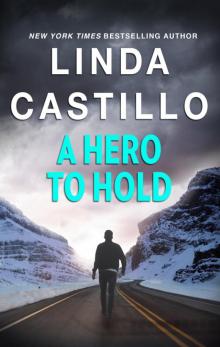 A Hero to Hold
A Hero to Hold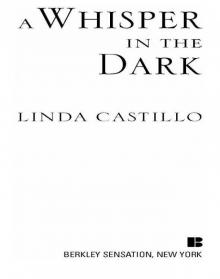 A Whisper in the Dark
A Whisper in the Dark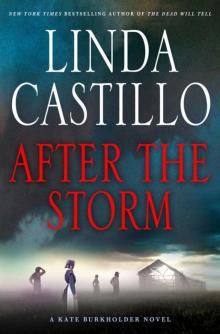 After the Storm
After the Storm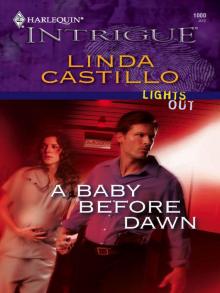 A Baby Before Dawn
A Baby Before Dawn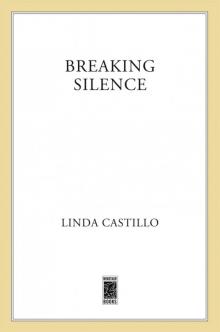 Breaking Silence
Breaking Silence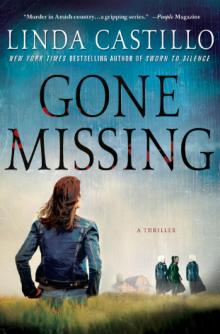 Gone Missing
Gone Missing Long Lost
Long Lost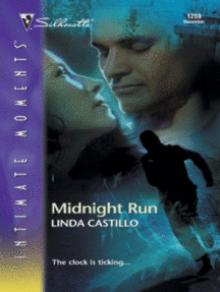 Midnight Run
Midnight Run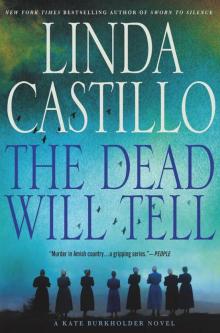 The Dead Will Tell
The Dead Will Tell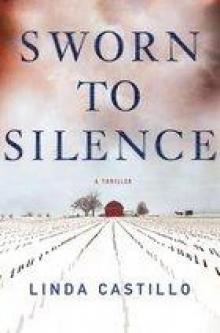 Sworn to Silence
Sworn to Silence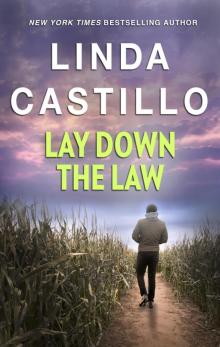 Lay Down the Law
Lay Down the Law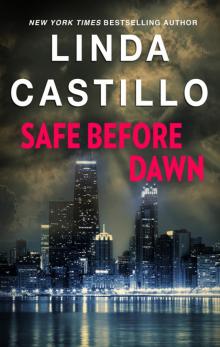 Safe Before Dawn
Safe Before Dawn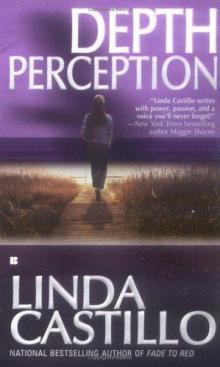 Depth Perception
Depth Perception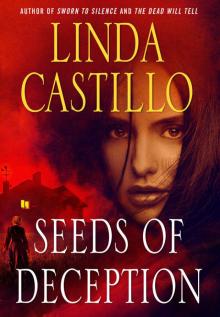 Seeds of Deception
Seeds of Deception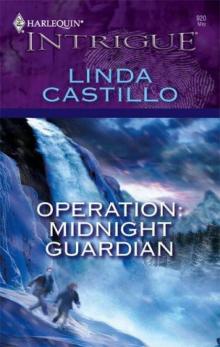 Operation: Midnight Guardian
Operation: Midnight Guardian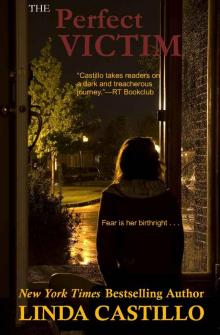 The Perfect Victim
The Perfect Victim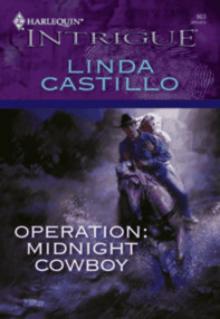 Operation: Midnight Tango
Operation: Midnight Tango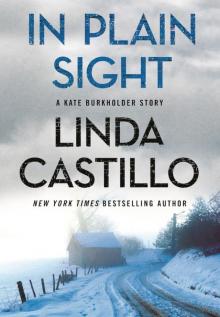 In Plain Sight (Kate Burkholder)
In Plain Sight (Kate Burkholder)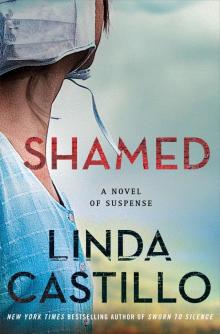 Shamed
Shamed Fallen
Fallen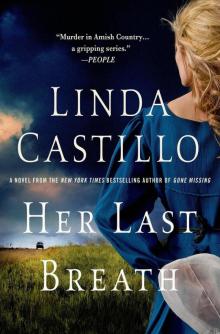 Her Last Breath
Her Last Breath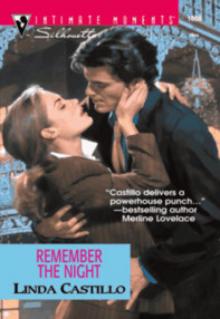 Remember the Night (Men in Blue)
Remember the Night (Men in Blue) Dead Reckoning
Dead Reckoning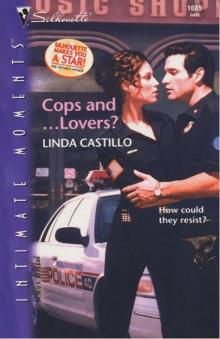 Cops and ... Lovers?
Cops and ... Lovers? The Pact
The Pact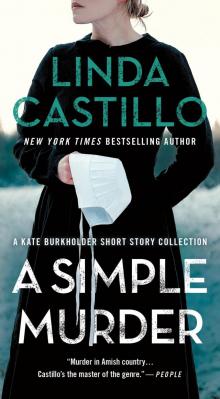 A Simple Murder
A Simple Murder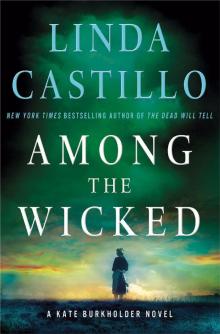 Among the Wicked
Among the Wicked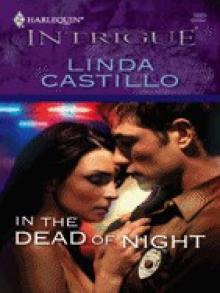 In the Dead of Night
In the Dead of Night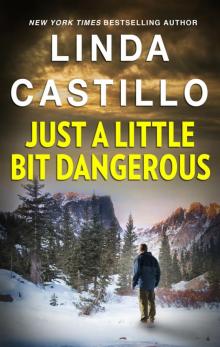 Just a Little Bit Dangerous
Just a Little Bit Dangerous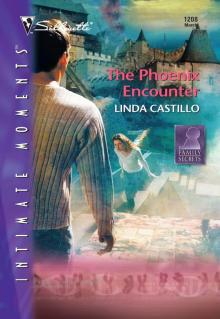 The Phoenix Encounter
The Phoenix Encounter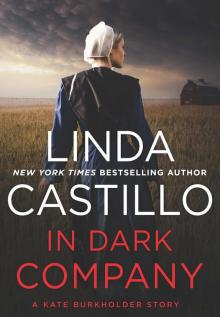 In Dark Company
In Dark Company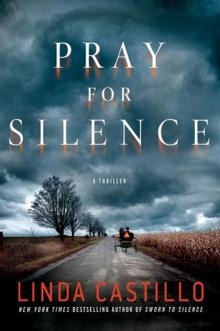 Pray for Silence
Pray for Silence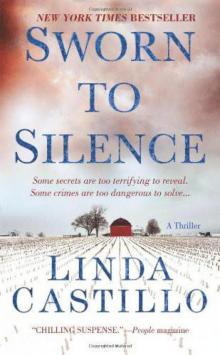 Kate Burkholder 01-Sworn to Silence
Kate Burkholder 01-Sworn to Silence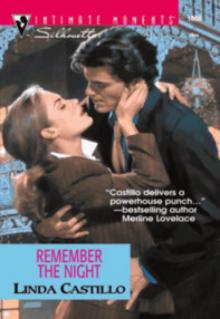 Remember the Night
Remember the Night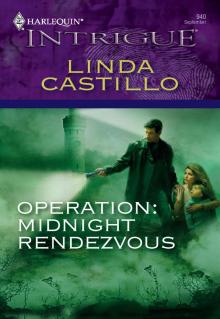 Operation: Midnight Rendezvous
Operation: Midnight Rendezvous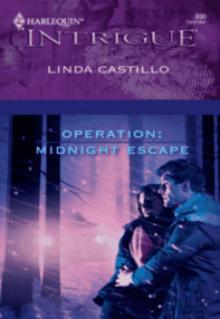 Operation: Midnight Escape
Operation: Midnight Escape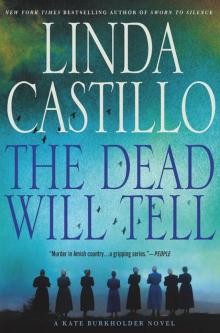 The Dead Will Tell: A Kate Burkholder Novel
The Dead Will Tell: A Kate Burkholder Novel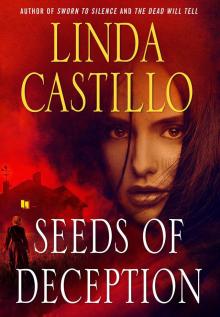 Seeds of Deception: A Kate Burkholder Short Story
Seeds of Deception: A Kate Burkholder Short Story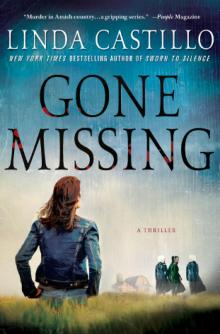 Gone Missing (Kate Burkholder 4) kb-4
Gone Missing (Kate Burkholder 4) kb-4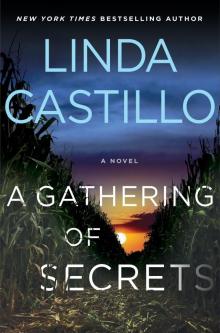 A Gathering of Secrets
A Gathering of Secrets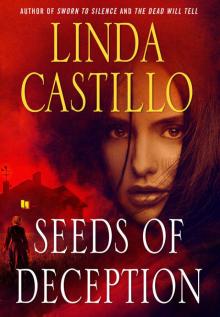 Seeds of Deception: A Kate Burkholder Short Story (Kindle Single)
Seeds of Deception: A Kate Burkholder Short Story (Kindle Single)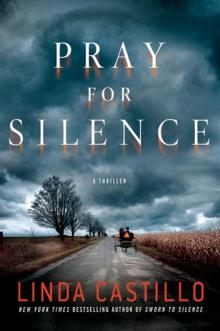 Pray for Silence kb-2
Pray for Silence kb-2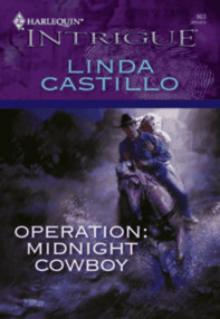 Operation: Midnight Cowboy
Operation: Midnight Cowboy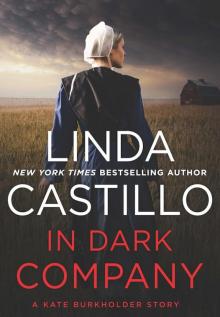 In Dark Company_A Kate Burkholder Short Mystery
In Dark Company_A Kate Burkholder Short Mystery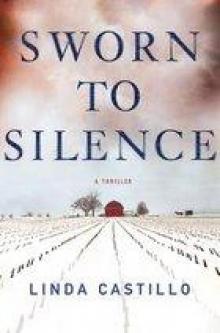 Sworn to Silence kb-1
Sworn to Silence kb-1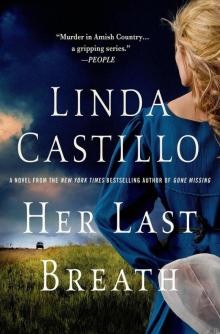 Her Last Breath: A Kate Burkholder Novel
Her Last Breath: A Kate Burkholder Novel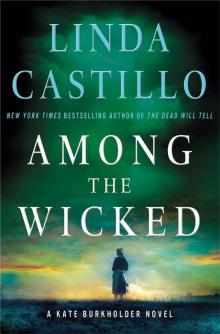 Among the Wicked: A Kate Burkholder Novel
Among the Wicked: A Kate Burkholder Novel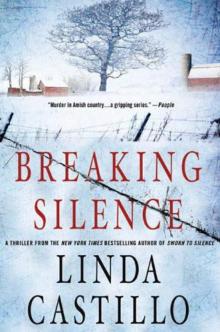 Breaking Silence kb-3
Breaking Silence kb-3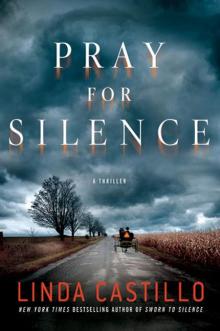 Kate Burkholder 2 - Pray for Silence
Kate Burkholder 2 - Pray for Silence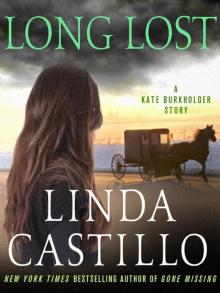 Long Lost: A Kate Burkholder Short Story
Long Lost: A Kate Burkholder Short Story